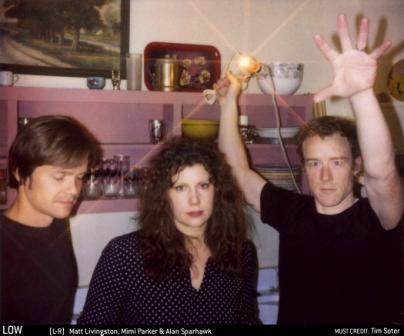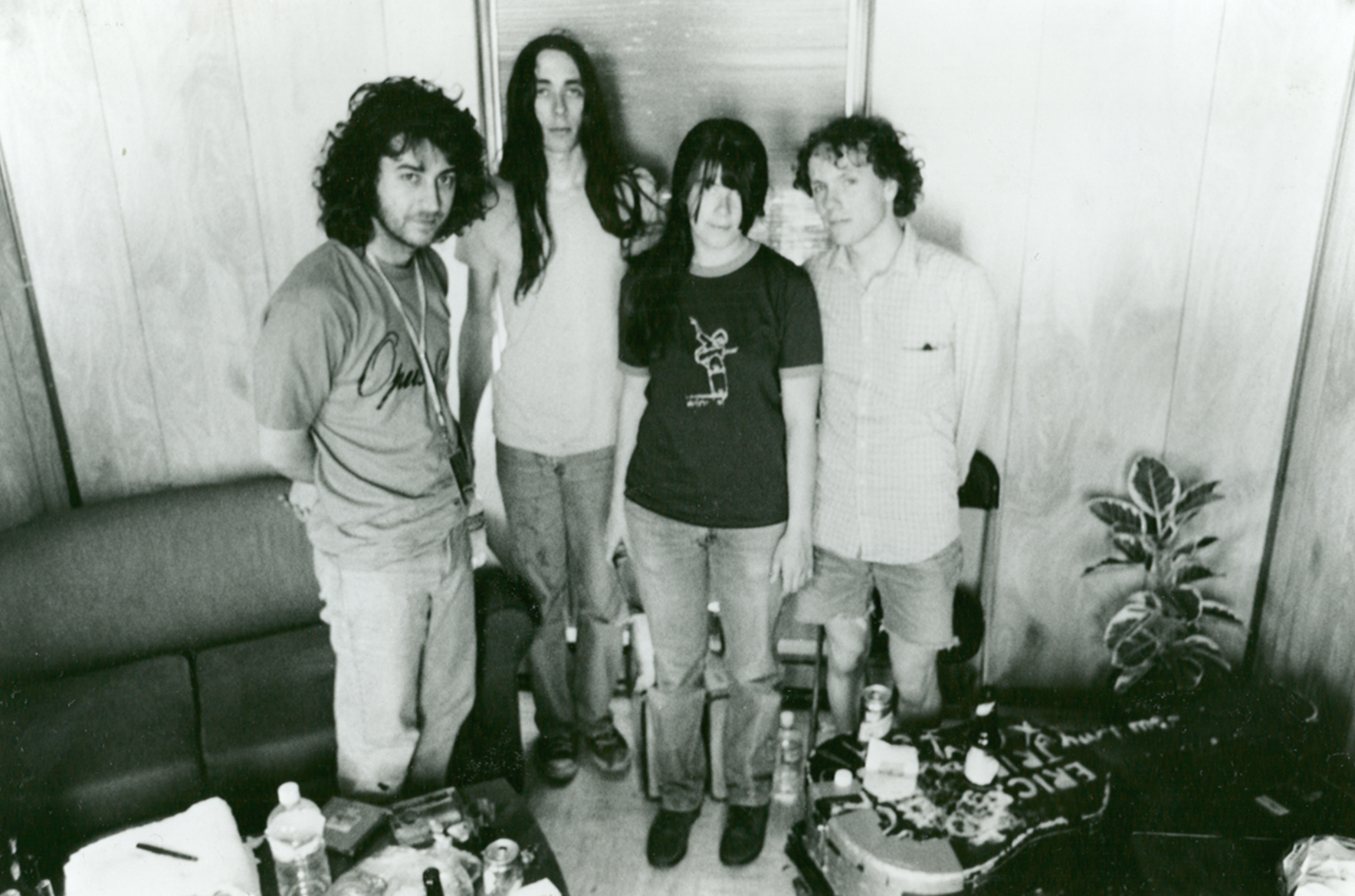Metric frontwoman Emily Haines thinks her lyrics say it all—in the band’s 2003 debut, Old World Underground, Where Are You Now?, and last fall’s Live It Out—but she’s wrong. On a Friday afternoon in New York City, between load-in and lunch, she’s got plenty to say that her lyrics don’t, including her opinion on some journalists’ inability to reconcile—unfortunately, in 2006—a woman with brains and a bod. “I don’t care if a writer is going to grapple with their problems with me in print,” she says. “They can be a rock star in their own right. They’ve got their audience, and they want to express themselves by their analysis of me, but it has nothing to do with me. The shows, the concerts—that’s my medium.”
It’s one she and her bandmates—guitarist Jimmy Shaw, bassist Josh Winstead, and drummer Joules Scott-Key—have been working while spending most of the new decade on a perpetual tour. Initially, their revved-up rock-disco hybrid couldn’t have hit at a worse time. “Old World was so incredibly unfashionable,” says Haines. “We made it at the height of garage rock—everyone’s doing this post-9/11, ‘We’re all going to hell’ roots-Americana thing, and we make a record of new wave, thinly disguised antiwar songs criticizing consumer culture.” Nevertheless, that Haines and Shaw, who’d been living in England and working on a “really domestic” electronic recording project, landed in New York City just then was fortunate, and eventually Old World became an underground hit. These days, the frustration of endless touring and little reward no longer applies to Metric, who spent a January weekend opening for the Rolling Stones’ two shows at Madison Square Garden, with an appearance on Conan O’Brien the day in between.
Currently calling Toronto home, Shaw has said they chose the name Metric to represent “the difference between imperialists and the rest of the world,” but Haines’ dual citizenship and the scattering of band members—Winstead and Scott-Key are based in Oakland—gives the group a multitiered cultural perspective. And there’s no short supply of homecoming shows. “It’s a really nice feeling to have roots in so many great cities,” says Haines. While supporting Old World, she’d publicly discussed the disillusionment that comes with so much travel, but she has a different take on it now. “Generally, the more I see, the better I feel about the world than before,” says Haines. “I feel like people are in a good place right now. Maybe it’s just the people who come to our shows—I like them.”
It’s not hard to return the sentiment. At last fall’s packed Crocodile gig, Metric’s energy spread to the back of the room like bolts of electricity from Haines’ synthesizer. People were participating—and if that means drinking, dancing, and singing along to “Handshakes”‘ duh refrain of “Buy this car to drive to work/Drive to work to pay for this car,” well, that’s kind of the point. It remains to be seen if anarchist music distros stock Live It Out in their Legion Hall–bound boxes, but Haines infuses her lyrics with more political concern than the passing minimum. And as with the modern-day situationists in Orchid or Shoplifting, they’re the politics of body as well as business. Write my senator? I can’t even get my love life together, you might think while empathizing with the serial one-night stand in “Poster of a Girl.” Reinforced by a pleasure-obsessed culture, it’s hard to focus on needs—tangible or emotional—when wants are so readily available.
“Maybe that’s why it resonates with people, because that’s exactly the dilemma we have. We’re complete hedonists; we’re not a well-behaved group of people,” says Haines. “In our case, part of being able to be a pleasure seeker is being able to stay honest about what’s fucked up. Maybe that’s some sort of escape valve in the music, where you can’t just do blow until dawn.”
On a larger scale, “The Police and the Private,” one of the most thought-provoking tracks on Live It Out, subtly foreshadows days of increased security and decreased freedom. Still, Haines insists that stoking political fires with her music isn’t an overt goal. “We all wake up in the morning, and you can’t help but have some concern for the bigger picture of what’s going on,” she says. “When your lilac tree is blossoming in February in Montreal, it’s not a matter of being political, but being moderately awake and compassionate. I think that’s what we find in our shows—people are relieved to acknowledge some of these things that are eating away at them, and move on.”
Some people she’s met on the road have more license to bitch than most, like the soldier Haines recently met in Florida, working security at a club between tours. “In Iraq he’d broken his neck and back, got a purple heart, and less than a year later, he’s being called back. He was glad it was him and not somebody else,” she says, amazed. “It’s nice when someone talking about it has some firsthand experience.” You won’t hear of him in Live It Out‘s liner notes—and who’s reading the newspaper? “What’s definitely not allowed is to have a whole generation of such privilege and affluence feeling so disconnected, not just from the political process but the sense that time is passing and belongs to us,” says Haines. “Fighting off lethargy,” as she also suggested in Our World’s “Combat Baby,” “is the first step in the 12-step Metric program.”








